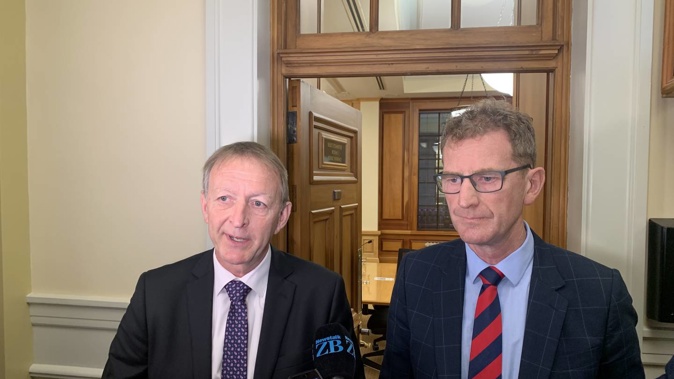
Foreign spies seeking to interfere with New Zealand’s politics and wider society are becoming “increasingly aggressive” as the country’s Security Intelligence Service reveals a “long-running espionage and interference investigation” into a number of individuals connected to a foreign state.
The SIS’ latest annual report references the investigation as one of three instances of foreign intelligence officers being detected targeting New Zealand and its people.
It comes alongside warnings that more young Kiwis are consuming violent extremist material online and could be involved in discussions around New Zealand’s next terror attack.
The report included three case studies of foreign interference - the most concerning of them being a “number of individuals” connected to one country acting as intelligence officers undertaking “intelligence activity”.
“The NZSIS has identified increasingly concerning activity from these individuals over the reporting period, including the cultivation of a range of relationships of significant concern,” it said.
Andrew Little is the minister responsible for the country's intelligence agencies. Photo / Mark Mitchell
Fortunately, information was shared with relevant government agencies that were able to use the advice to limit the potential harm the individuals could enact.
Common activities by such individuals included monitoring people considered to be dissidents and preventing them from expressing views “deemed subversive by the foreign state”.
“Foreign state interference activities cause some members of New Zealand’s communities to feel less safe, secure, and free, thereby impacting their ability to exercise basic human rights, such as their freedom of speech and freedom of association.”
Another case study spoke of a Kiwi whose political views had attracted the attention of a foreign intelligence service.
The report said the SIS intervened and engaged the person to provide advice around their safety and welfare.
The final example concerned “discovery projects” that used improved information sharing with international partners to enhance the agency’s ability to identify intelligence activity in Aotearoa, which assisted in the identification of “previously unknown individuals of security concern”.
Despite the progress in the last year, the agency described how some countries’ efforts to gather intelligence in New Zealand were “enduring and persistent”.
“We identified increasingly aggressive activity from some of those individuals.”
The report also detailed the likely circumstances of New Zealand’s next terror attack and what motivations could prompt someone to facilitate such an attack.
“Terrorist violence in New Zealand is most likely to come from a lone actor, recruited or inspired online and conducted using an easily obtainable weapon such as a car, knife or gun.
“These individuals may mobilise to violence rapidly, with little or no warning.”
The agency had become aware of an “increasing number of young people in New Zealand” who were consuming online violent extremist content, which could influence an attack.
“Young people may be involved in discussions around committing attacks on target groups, often using dark humour to gain social credit.
“Some young people have gone on to express support for violent extremism.”
In the 2021/22 period, the agency recorded an increase in the number of people involved in “anti-authority or conspiracy-driven violent extremist ideologies”, including those who were opposed to Covid-19 prevention programmes, public health measures, and the wider Government.
“We are also aware of the existence of individuals whose support for violent extremist ideologies is driven by a fixation on violence rather than real commitment to an ideological cause or movement,” the report said.
“In these cases, the NZSIS works closely with the New Zealand Police to determine whether the case should be managed as a threat to public safety or a violent extremist threat.”
Take your Radio, Podcasts and Music with you

/cloudfront-ap-southeast-2.images.arcpublishing.com/nzme/XERVX7XOSFCH7HNSIDEKWHNARY.JPG)








